Biography
Gregory Zinoviev - prominent Soviet politician, revolutionary and member of the Bolshevik party. This person entered the story not only as the first leader and the ideological leader of the Communist International, but also as a serious rival of Joseph Stalin, his opponent and a person who personally assumed the parish to power the Iron Chief.Childhood and youth
The biography of the future revolutionary began in the city of Elisavetgrad (now it is Ukrainian Kropyvnytsky). Grigory Zinoviev was born on September 11, 1883. The name given to the boy from the birth - Evsei-Herch. Father Zinoviev, Aaron Radomyslsky, owned his own dairy farm.
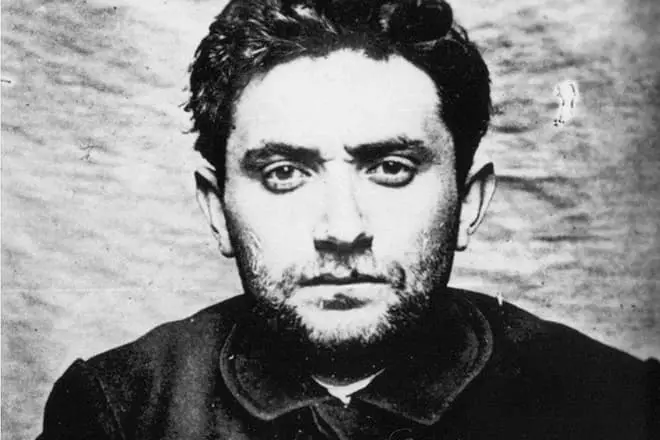
At the real name, Evsey Aaronovich responded only in childhood and adolescence, then the party pseudonyms of Grigoriev, Shatsky, Zinoviev, used. The latter stayed with politician forever.
Grigory Zinoviev received an excellent home education, as was customary in those years among secured citizens. In his youth, a young man became interested in philosophy, politics, global history, and already in 1901 began to comprehend political science in life, and not on the pages of books, joining the working social democratic movement.
The revolution
It is noteworthy that already in 1901, being very young, Zinoviev was headed by several strikes and demonstrations in Novorossia. The persecution of the police forced Gregory Zinoviev for a while leaveing the country. In 1902, the revolutionary moves to Berlin, then moved to Paris and, finally, stops in the Swiss Bern. There Zinoviev meets Vladimir Lenin. This meeting has become a fateful: For many years, Grigori Zinoviev will be one of the attached to the leader, his attorney and the authorized representative.
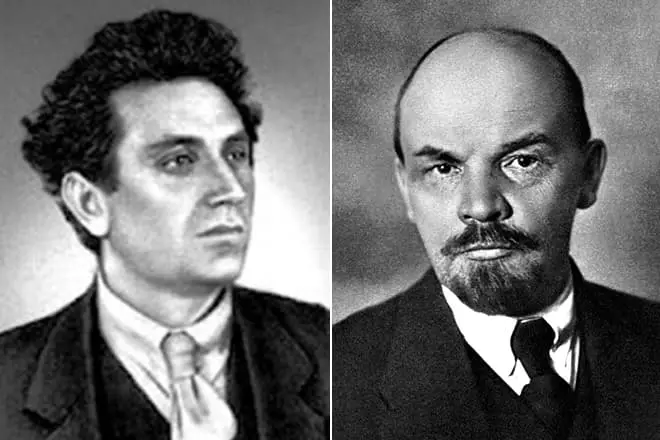
In 1903, Grigori Zinoviev joined the Bolshevik party, supporting Lenin. Immediately after that, the revolutionary returned to his homeland to lead the campaign work among the working class. A year later, Zinoviev again left the country, this time due to the state of health.
Repeated return to the motherland took place in 1905. Zinoviev was immediately elected a member of the RSDLP City Committee in St. Petersburg, also directly participated in the preparation and holding of the 1905 revolution. The struggle for Bolshevik ideals lasted more than one year. In 1908, Gregory Zinoviev was taken into custody, but after a few months the revolutionary was released on freedom due to the worsening health.
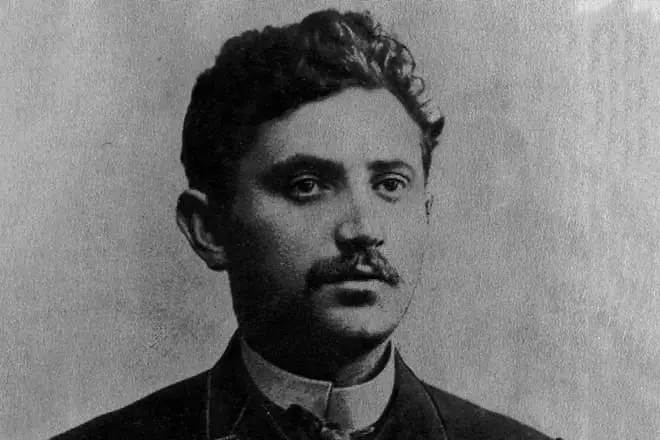
This liberation allowed Gregory Zinoviev to leave the country: together with Vladimir Lenin Zinoviev went to Austria. Forced immigration lasted until 1917 - in April Gregory Zinoviev and Vladimir Lenin with many more like-minded people were again in Russia, having done a risky journey in the separable train carriage.
The struggle for power flared up in full swing. The temporary government made the latest attempts to keep superiority, but disagreements began in the Bolshevik environments. At the next meeting of the Central Committee, Grigori Zinoviev and Lev Kamenev opposed the forcing the overthrow of the temporary government, which caused Vladimir Lenin discontent.
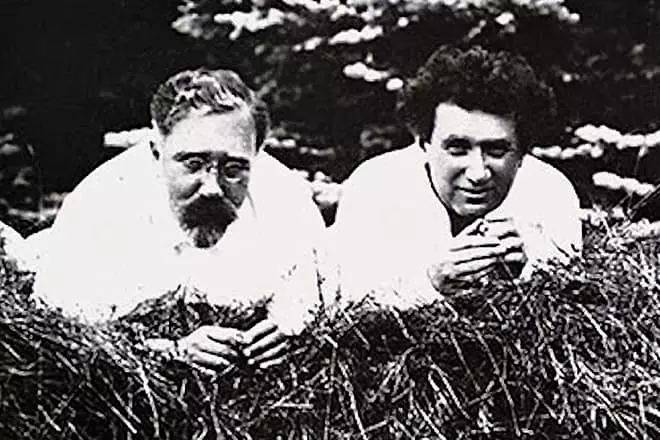
For this act, the leader of the revolution considered both traitors of bright ideas and even raised the issue of excluding Zinoviev and Kamenev from the composition of the party. It did not come to such a cardinal actions, but both "oppositionists" were banned in meetings on behalf of the Central Committee.
The revolution in the meantime she walked in full swing - the Bolsheviks managed to capture power in the northern capital. Despite the seeming cohesion of revolutionaries, there was a serious split inside the Bolshevik leadership: the workers' committees demanded the creation of a single socialist body, which would not be part of Vladimir Lenin and Leo Trotsky.
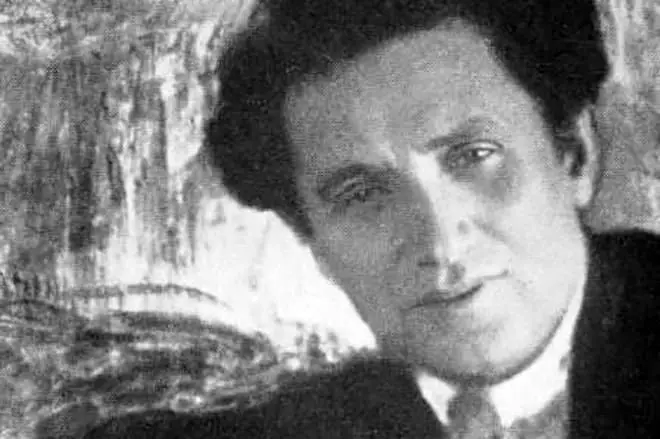
Similar sentiments were hurried to take advantage of Gregory Zinoviev, Lev Kamenev, as well as their supporters Viktor Nogin and Alexey Rykov. This group supported the requirements expressed, arguing her own opinion by the need to complete cohesion of all supporters of socialism for the success of the revolution. At first, it seemed that the supporters of Zinovyev would obey, but Lenin and Trotsky soon managed to return superiority to his side.
The next day, Zinoviev and supporters of his opinion demonstratively left the Central Committee, writing the relevant statements. In response, Vladimir Lenin called the former comrades traitors of bright ideals and deserters.
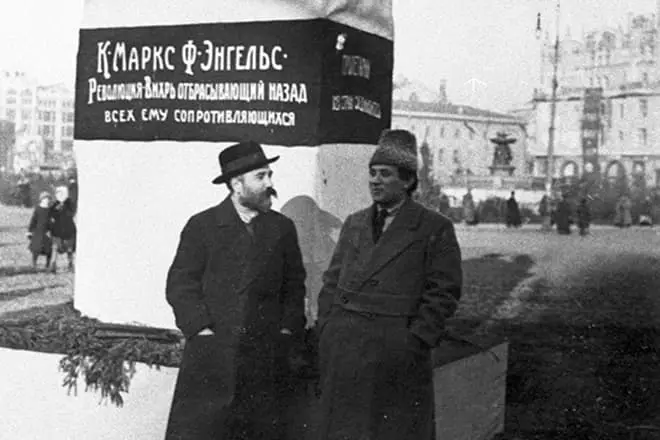
It seemed that Gregory Zinoviev's political career came to an end. However, revolutionaries catastrophically lacked competent and experienced leaders, and Zinoviev returned to politics. Until the spring of 1918, he was led by the Petrograd Bolshevik Council, then held the posts of the chairman of the Council of Peterograd, the head of the Union of the Northern Region, the head of the Union of the Northern Region and the Chairman of the Chief Committee of the Revolutionary Defense of Petrograd.
The ideological clashes of Zinoviev with Lenin continued: Grigory Zinoviev did not support the idea of the leader to start the so-called "red terror" after the murders of Moses Uritsky and V. Vododar. In addition, Zinoviev spoke out against the idea of Vladimir Ilyich to postpone the capital of the country to Moscow.
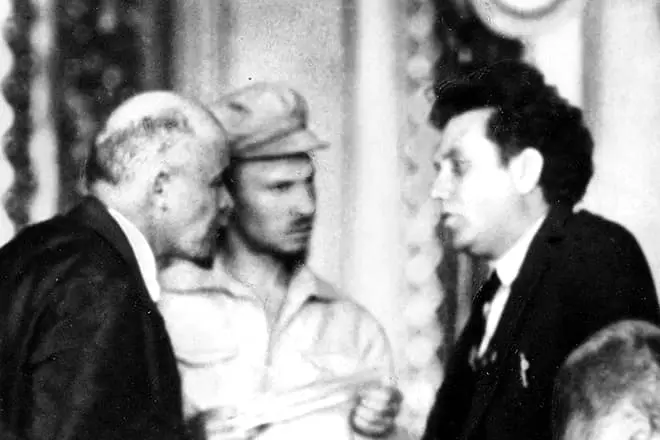
At the same time, according to the testimony of Pitirima Sorokina, a sociologist and a contemporary of events, it is Grigory Zinoviev, who returned the location of Vladimir Lenin in the end, became the main organizer of terrible events of the most "Red Terror". According to the orders of Zinoviev, intellectuals and nobles were shot, which at the time considered the "class of exploiters".
From 1921 to 1926, Gregory Zinoviev was part of the Politburo members. The politician constantly acted with reports and speeches and even began working on the collected works. In 1922, Zinoviev was the first to propose the candidacy of Joseph Stalin to the post of the Secretary General, having the goal of shifting the Leo Trotsky.
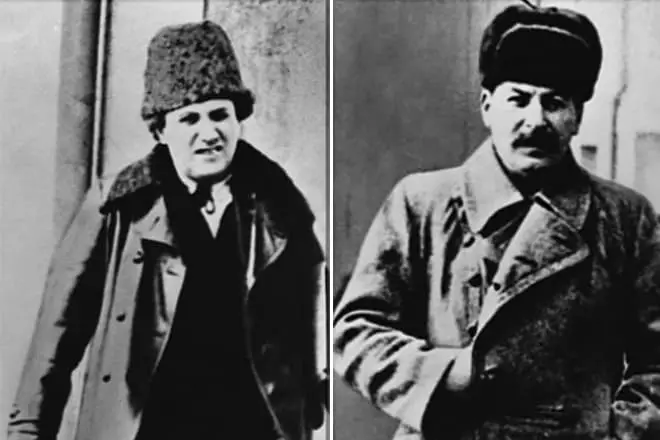
However, in 1925, Grigory Zinoviev expressed dissatisfaction with the actions of Stalin, including in the article "The Philosophy of the Epoch", printed in the "Pravda". The result was the removal of Zinoviev from political activities, and then an exception from the party.
The political opal did not have to Gregory Zinoviev on the moral: the revolutionary repented in his own deeds and in 1928 he achieved recovery in party ranks. For four years, Zinoviev taught at Kazan University, taking the post of rector, published articles and felt safe.
However, a terrible machine, launched upon his own assistance, reached him. In 1932, Grigory Zinoviev was arrested and sentenced to four years of reference. A year later, the sentence was canceled. It seemed that a storm took place by the party, but in 1934 Zinoviev waited for a new arrest and a terrible sentence.
Personal life
Judging by the preserved photo, Gregory Zinoviev was not a handsome man, but I had an impression of a volitional man. The first wife of Grigory Zinoviev became Sarah Ravich, in Bolshevik circles, the submitted Olga. The woman supported the spouse in revolutionary activities and even for some time was the Commissioner of the Interior of the Northern Region.
Relationships in the first marriage went to no, and Grigory Zinoviev married again. This time the policy was the policy of Lilina, known under the party pseudonym Zina Levin.
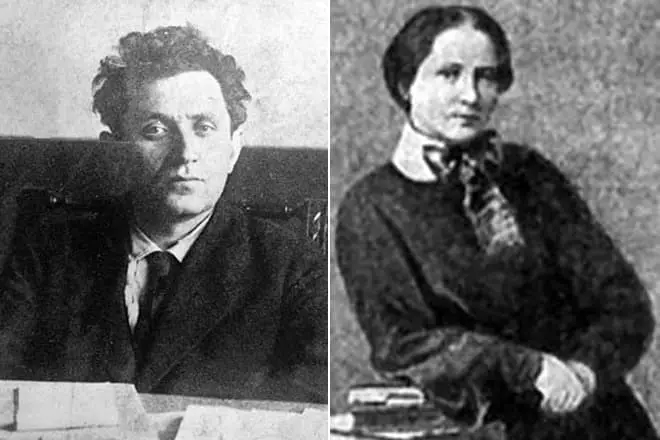
Levin also shared socialist ideas that were actively promoted, being an employee of the newspaper "Star" and "True". In the second marriage, Grigory Zinoviev was born Son Stefan. The young man lived a brief life - at the age of 29, Stephen was shot.
The third companion Grigory Zinoviev became Evgenia Lasman. The fate of the woman is also unquestioned: Eugene Yakovlevna has repeatedly arrested and spent almost 20 years in prison.
Death
December 16, 1934 Gregory Zinoviev was arrested. The revolutionar was excluded from the ranks of the party and sentenced to ten years in prison. Zinoviev's letters were preserved, addressed to Joseph Stalin, in which Grigory Zinoviev asked for a mercy and assured that it was repent.
Two years later, in 1936, Zinoviev sentenced to the highest punishment. August 26 of the same year of the former policies shot. The eyewitnesses of what happened later will write that the willpower of the Will led by the revolution over the revolution in the last minutes: sentenced to cancel the execution and could not even step up and step.
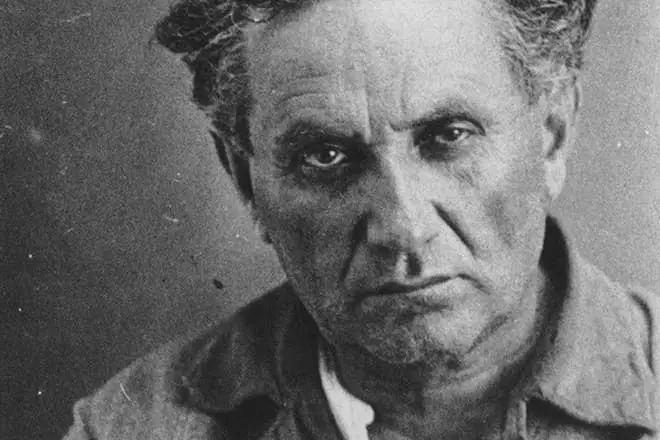
The execution was attended by the head of the NKVD Henry Beroda, as well as employees of the same department Nikolai Ezhov and Karl Puker. These three figures for the irony of fate ended their century as well as Gregory Zinoviev: they were shot by several years later.
The name of Gregory Zinoviev was rehabilitated on July 13, 1988 by the decision of the Supreme Court of the Soviet Union.
Films
- 1927 - "October"
- 1951 - "Unforgettable 1919"
- 1983 - "Red Bells"
- 1992 - "Stalin"
- 2004 - "Children of Arbat"
- 2013 - "Stalin with us"
- 2017 - "Bitter Harvest"
- 2017 - "Demon Revolution"
Bibliography
- 1918 - "Austria and World War"
- 1920 - "War and the Crisis of Socialism"
- 1925 - "Bolshevization-Stabilization"
- 1925 - "History of the First Russian Revolution"
- 1925 - "Leninism"
- 1926 - "War, Revolution and Menshevism"
